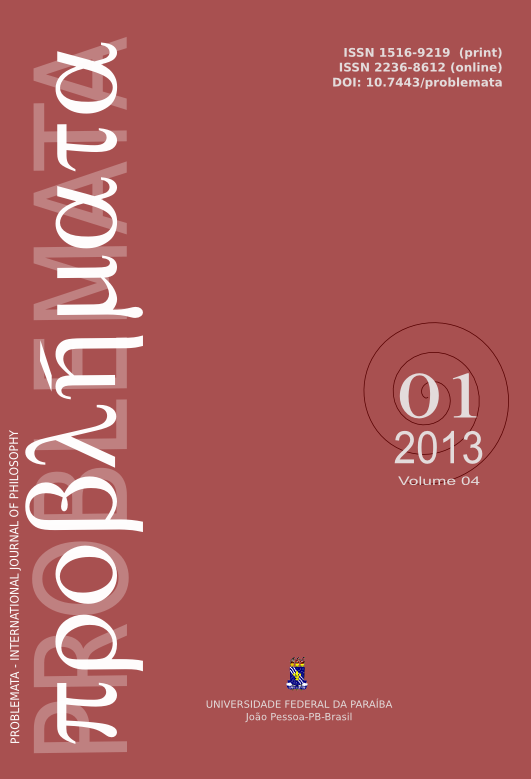HANS JONAS: THE PROBLEM OF DUALISM NIHILISTIC PHILOSOPHICAL AND SCIENTIFIC THOUGHT AND MEMORY OF NATURE IN THE WEST
DOI:
https://doi.org/10.7443/problemata.v4i1.12534Abstract
Seeks to, in this article, conduct an analysis of key aspects of thought jonasiano, faced with the problem of dualism embedded in the nihilistic philosophical and scientific thought. This dualism, according to this philosopher, has focused on memory formation west of nature, both modern and contemporary, contributing to a vision of separation between man and nature, especially the basic epistemic and ethical. Jonas proposes an overcoming of dualism, both idealist-rationalist and materialist-naturalist and existential, anticipating that there is a basis in these nihilistic ways of thinking about man-nature relationship, which has its origins in primitive gnosis: soul x body, spirit x material. The output of this dichotomy is a consideration of the values held by teleology in nature itself, which from the earliest forms of organic life already pre-figure the spiritual, then the culminating human responsiveness, in direct proportion to its power techno-scientific development in the world socio-environmentally articulated.Keywords: memory, nature, dualism, values, responsiveness.
Downloads
Download data is not yet available.
Downloads
Published
2013-06-07
Issue
Section
Papers
License
Authors who publish with this journal agree to the following terms:
- Authors retain copyright and grant the journal right of first publication with the work simultaneously licensed under a Creative Commons Attribution License that allows others to share the work with an acknowledgement of the work's authorship and initial publication in this journal.
- Authors are able to enter into separate, additional contractual arrangements for the non-exclusive distribution of the journal's published version of the work (e.g., post it to an institutional repository or publish it in a book), with an acknowledgement of its initial publication in this journal.
-
- Authors are permitted and encouraged to post their work online (e.g., in institutional repositories or on their website) prior to and during the submission process, as it can lead to productive exchanges, as well as earlier and greater citation of published work (See The Effect of Open Access).





